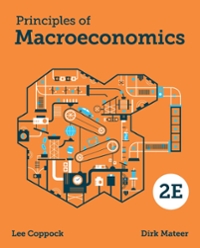II. True/False Questions (2 points per each. 16 points in total] 1. If Japan has an absolute advantage in the production of an item, it must also have a comparative advantage in the production of that item. ( i 2. Macroeconomics is concerned with the study of how households and firms make decisions and how they interact in specic markets. ( ) 3. If an advanced country has an absolute advantage in the production of every thing, it will benet if it eliminates trade with less-developed countries and be comes completely self-sufficient. ( ) 4. The \"base year\" in a price index is the benchmark year against which other years are compared. l ) 5. In very poor countries, paying parents to send their children to school may in crease the education of poor children and decrease the use of child labor. [ i 6. If the government wanted to increase the rate of growth, it should raise taxes on interest and dividends to shift the supply of loanable funds to the right. i l 7. If the prevailing interest rate is 10 percent, a rational person should be indifferent between receiving $1,000 today and $1,000 one year from today. i i 8. Public saving and the government's budget surplus are the same thing. ( } Ill. Term definition {4 points per each. 24 points in total) 1. Gross domestic product 2. Producer price index 3. Catch~up effect 4. Financial intermediaries 5. Efficient markets hypothesis 6. Purchasing-power parity IV. Discussion (10 points in total) You are watching a presidential debate. When a candidate is questioned about his position on economic growth, the presidential candidate steps forward and says, "We need to get this country growing again. We need to use tax incentives to stimulate saving and investment, and we need to get that budget decit down so that the government stops absorbing our nation's saving." 1. If government spending remains unchanged, what inconsistency is implied by the presidential candidate's statement? 2. If policymakers want to increase growth, and if policymakers have to choose between tax incentives to stimulate saving and tax incentives to stimulate in vestment, what might they want to know about supply and demand in the loan able-funds market before making their decision? Explain







